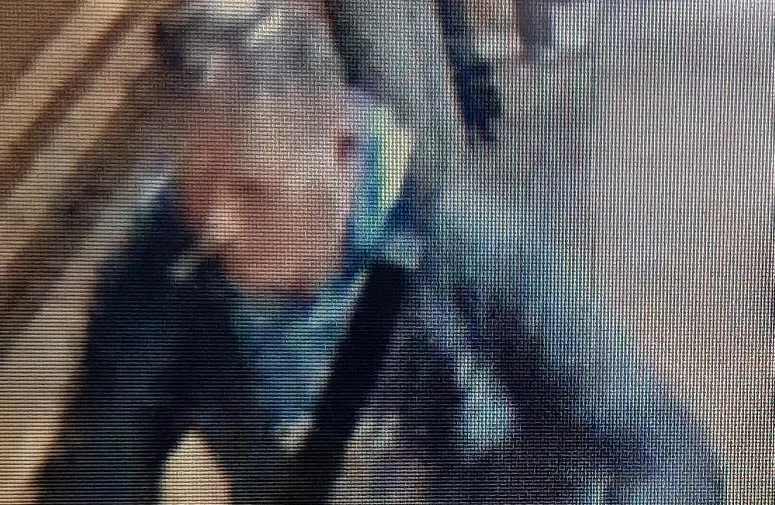News
Covid breaches, IPSO, and finally the truth emerges
IPSO confirms truth about Covid breaches in Wisbech

It is convenient, at least for three Wisbech town and Fenland district councillors, to overlook, forget, dismiss, or even deny their actions of Christmas Eve, 2020.
But on that night Wisbech was subject to the Coronavirus Restrictions regulations of that same year.
Rules that were to escalate beyond their expectations but of which they reminded of by a police officer.
Pc1426 Justin Bielawski summed it up in a letter sent to all three a short while later.
He wrote that it “is alleged” that you and others “not from your household or as part of a permitted bubble” were “on the 24th of December 2020 at the Angel Public House, Wisbech”.
“At the time of this allegation Wisbech, Cambridgeshire was subject to government Tier 2 restrictions.
“Amongst other things this placed restrictions on who you could meet up with indoors.
“I have reviewed CCTV footage from the public house, and this appears to support the allegation.
The landlord, Aigars Balsevics, was at the time also Mayor of Wisbech; he received a £1,000 fine.
But the three councillors remained unnamed until a Freedom of Information request to Cambridgeshire Police revealed that three unnamed councillors were also present and had been warned about their breaches of the Covid regulations.
These were (then) town council leader Samantha Hoy (pictured, second left), and councillors Steve Tierney (left) and David Topgood (bottom right)
Police felt the letter was sufficient – simply because they were the only ones (apart from one other member of the public) who they could identify.
Natural justice, felt Cambridgeshire police, would not be served if the other 30 or more members of the public in the bar at the time, and who could not be identified, were not also brought to book.
There, of course, it might have ended, until I revealed the names of Cllr Hoy and Cllr Tierney in my former newspaper, the Wisbech Standard.
Cllr Hoy was emphatic that she had “not received a written warning from the police. Ever.”
And she dismissed claims that she had fallen foul of Covid rules, describing the accusation as “false and defamatory”.”
Cllr Tierney was even more forthright in his denial.
“I have done nothing wrong,” he told me.
“I have just made an IPSO complaint (of which more shortly) about your last story based on inaccurate reporting and will reserve judgement on this one until I read it.
“I have nothing further to say to you or to your nasty little biased, propaganda publication. “
‘Support’ as such for Cllrs Hoy and Tierney included this from former Conservative mayor and former Wisbech councillor Jonathan Farmer.
He questioned whether “the leaking of personal information by PC1426 Justin Bielawski to the press constitute a good reason for a complaint to the Independent Police Complaints Commission?
“Yes, I think it does. Corrupt police officers should be removed.”
Phew.
Cllr Chis Boden (top right) is leader of Fenland District Council and heads the cabinet which includes both Cllr Tierney and Cllr Hoy.
In response to an email, he replied as follows.
“I am aware of facts which are not stated in your question which mean that it is only appropriate in all of the circumstances for your question to be responded to by Fenland District Council’s Head of Paid Service or by an Officer nominated by him, to the extent that any such response is possible or appropriate at this time,” he wrote.
“Whilst I have no first-hand knowledge of the IPSO complaints and the background to them, I await with interest the results of those complaints alleging factually inaccurate reporting by you online in the last week relating to this matter.”
He added: “Freedom of the Press to publish whatever they want, however biased that may or may not be, is a very important part of our democracy and our freedoms – but as you are well aware that press freedom is limited both by law and by the press’ established regulatory processes.”
We will come, as I said earlier, to IPSO in a moment, since it widely recognised to be impartial, scrupulous, and dogged in pursuit of false or unfair reporting.
I had invited Cllr Boden to comment on an interview I had conducted with Clare Darnes, the wife of a (then) senior environmental health officer at Fenland District Council.
He was at the heart of a Fenland Council licensing probe into events at the Angel but these focused, exclusively, on alleged breaches by Cllr Balsevics.
But Trevor Darnes also knew three councillors were present and wanted Fenland Council to at least investigate, under their code of conduct, behaviour of all three.
Mrs Darnes told me that her husband was prevented from making an internal conduct complaint, effectively because councillors were deemed to be not acting in their role as councillors.
However, she also says action should have been considered because a) Fenland Council licences the premises and b) that councillors themselves have a duty to report such failings in observance of Covid law when they witness it.
I also wanted Cllr Boden to investigate whether pressure had been applied to ensure no code of conduct hearing would be instigated against the three councillors.
Mrs Darnes says she gained an insight into events since Christmas Eve because her husband worked from home during most of the pandemic.
“I witnessed conversations between him and senior management regarding the licensing case against Aigars Balsevics and his concerns about the behaviour of other Cllrs who were in the Angel Inn on Christmas Eve last year.
“Trevor had seen the councillors breaching Covid rules whilst he was reviewing the CCTV footage and reported this to FDC senior management.
“He was told that nothing could be done as they were in the pub in their own time and not acting as councillors.”
Mrs Darnes said her husband had made the point that the councillors had seen the Covid breaches going on the pub.
“As elected members, whose top priority should be public protection, it was completely unacceptable not to act.
“Once Trevor told senior management of his intention to make a formal conduct complaint their attitude towards him became very frosty and defensive towards the councillors.
“I heard on more than one occasion them tell him that he would be taken off the licensing case if made the complaint.”
Mr Darnes, eventually, felt he had no option other than to leave Fenland Council and one day may feel it appropriate to speak publicly about his experiences.
But we return to IPSO, the Independent Press Standards Organisation.
Cllrs Tierney and Hoy complained, separately, and left me, confident of the outcome but still anxious, as any Editor would be, of having a career threatening ruling against him.
You can finish reading here or plough on for the full, unedited, adjudications.
Decision of the Complaints Committee – 11928-21 Tierney v Wisbech Standard
Summary of Complaint
1. Steve Tierney complained to the Independent Press Standards Organisation that Wisbech Standard breached Clause 1 (Accuracy) of the Editors’ Code of Practice in an article headlined “Police reveal 3 councillors got written warning over Covid”, published on 15th November 2021.
2. The article reported that “[t]hree Wisbech town and Fenland district councillors received written warnings from Cambridgeshire Police for breaching Covid-19 regulations”.
It identified by name three councillors as having been at the Angel Public House on Christmas Eve in 2020, one of them being Steve Tierney.
The article went on to state that the individuals were identified by Cambridgeshire Police after the seizure of CCTV footage, and that they had not received fines, but the matter was dealt with by a “written warning”.
The article included some of the text of the letter written to the three councillors. The letter stated that the police had received a complaint “to report that you have breached the Health Protection (Coronavirus Restrictions) Regulations 2020.
It is alleged that you have other persons (not from your household or as part of a permitted bubble) on the 24th of December 2020 at the Angel Public House” and that the police “have reviewed CCTV footage from the public house and this appears to support the allegation”.
The letter also stated that “Police on this occasion will not be taking any formal action against you for this breach, but I would like to take this opportunity to remind you to keep up to date with current government regulation and guidance”.
3. The complainant, one of the councillors named in the article, said that the article was inaccurate in breach of Clause 1 as it claimed that he had received a written warning from the police and that he had breached Covid-19 regulations. The complainant said that he had never received a written warning from the police and that he did not commit any breaches of Covid-19 regulations on Christmas Eve. The complainant further said that a police warning had a specific meaning and provided a link to a Gov.uk page about police warnings and cautions.
He said that a warning and a caution were the same thing and involved an individual admitting to an offence and agreeing to be cautioned.
4. The publication did not accept a breach of the Code.
It said that the publication had made a freedom of information (FOI) request to Cambridgeshire Police, who confirmed that the letter quoted in part in the article had been sent to three councillors.
The publication provided the correspondence containing the FOI request and the full letter from the police, which it said made clear the breaches of the Covid-19 regulations. The publication went on to state that the identity of the three councillors was confirmed by a senior source who had seen the CCTV footage.
It said that the source who examined the CCTV footage confirmed Councillor Tierney was one of the three councillors seated at the same table as other individuals drinking in the pub and that it was certain no other councillors were present.
5. During the investigation, the complainant was asked to confirm whether or not he had received the letter from Cambridgeshire Police; he said that he had not received a warning or caution from the police but did not confirm or deny whether he had received the letter quoted in the article.
Relevant Code Provisions
Clause 1 (Accuracy)
i) The Press must take care not to publish inaccurate, misleading, or distorted information or images, including headlines not supported by the text.
ii) A significant inaccuracy, misleading statement or distortion must be corrected, promptly and with due prominence, and — where appropriate — an apology published. In cases involving IPSO, due prominence should be as required by the regulator.
iii) A fair opportunity to reply to significant inaccuracies should be given, when reasonably called for.
iv) The Press, while free to editorialise and campaign, must distinguish clearly between comment, conjecture, and fact.
Findings of the Committee
6. The complainant’s primary concern was that the newspaper had incorrectly stated that he had received a “written warning… from Cambridgeshire Police for breaching Covid-19 regulations”.
The article had included much of the text of the “warning” – a letter from the police – to which it referred.
While the complainant denied having received a “written warning” from the police or having breached the Covid-19 regulations, he would not confirm or deny to IPSO whether he had received the letter quoted in the article.
This had a significant impact upon the Committee’s ability to make a finding in regard to the accuracy of the assertion that the complainant was the recipient of the correspondence. Notwithstanding this point, the Committee considered that the publication had demonstrated that it had taken care over the accuracy of this claim and its presentation of it.
The newspaper had a copy of the full letter and had made an FOI request to Cambridgeshire Police to establish how many individuals the letter was sent to. In addition, a confidential source had confirmed which three councillors could be seen in the CCTV footage.
In light of the material provided by the publication to substantiate its position and the complainant’s declining to provide further information, the Committee did not establish a significant inaccuracy requiring correction.
7. While the Committee did not establish a significant inaccuracy requiring correction, it noted the complainant’s position that, according to the government website, “warning” could be used interchangeably with “police caution”.
However, it was the Committee’s view that the phrase “written warning” was a non-specific term and did not exclusively mean that an individual had received a police caution. The Committee considered that the article made clear the nature of the warning that was issued by the police.
8. The complainant had also said that the article was inaccurate to claim that he had breached Covid-19 regulations.
The Committee considered that the article as a whole made the position clear. It had quoted the letter at length – including the statement that “Police on this occasion will not be taking any formal action against you for this breach” – the letter had also stated that the police had viewed evidence which “appear[ed] to support the allegation” and sought to remind the recipient of the importance of keeping updated on current regulations. There was no breach of Clause 1 on this point.
Conclusion(s)
9. The complaint was not upheld.
Remedial Action Required
10. N/A
Decision of the Complaints Committee – 11818-21 Hoy v Wisbech Standard
Summary of Complaint
1. Samantha Hoy complained to the Independent Press Standards Organisation that Wisbech Standard breached Clause 1 (Accuracy) and Clause 9 (Reporting of crime) of the Editors’ Code of Practice in an article headlined “Police reveal 3 councillors got written warning over Covid”, published on 15th November 2021.
2. The article reported that “[t]hree Wisbech town and Fenland district councillors received written warnings from Cambridgeshire Police for breaching Covid-19 regulations”.
It identified by name three councillors as having been at the Angel Public House on Christmas Eve in 2020, one of them being Samantha Hoy.
The article went on to state that the individuals were identified by Cambridgeshire Police after the seizure of CCTV footage, and that they had not received fines, but the matter was dealt with by a “written warning”.
It stated that “Cambridgeshire Police released a statement which says three Wisbech councillors did receive a written warning from events at the Angel”, but that no further action was being taken against the councillors.
The article included some of the text of the letter written to the three councillors. The letter stated that the police had received a complaint “to report that you have breached the Health Protection (Coronavirus Restrictions) Regulations 2020.
It is alleged that you have other persons (not from your household or as part of a permitted bubble) on the 24th of December 2020 at the Angel Public House” and that the police “have reviewed CCTV footage from the public house and this appears to support the allegation”.
The letter also stated that “Police on this occasion will not be taking any formal action against you for this breach, but I would like to take this opportunity to remind you to keep up to date with current government regulation and guidance”. The article concluded by stating that “Cllr Hoy has been approached for a response”.
3. The complainant, one of the councillors named in the article, said that the article was inaccurate in breach of Clause 1 as it had stated that she had received a “written warning” from the police.
The complainant said that a written warning was a formal caution from the police, and that she had never received one of these; she added that on the Gov.uk website, a police caution was also referred to as a warning, where there is a legal record of an admission of an offence.
The complainant said that the article was further inaccurate as it claimed that she had breached Covid rules; she said that these allegations were presented as fact.
The complainant also said that the article was inaccurate to state that “Cambridgeshire Police released a statement which says three Wisbech councillors did receive a written warning from events at the Angel” as she did not consider any such statement was made; she said that while the police had stated that three councillors had received a letter, they did not confirm who these councillors were and did not describe the letter as a “warning”.
4. The complainant said that there had been a further breach of Clause 1 as she had responded to the journalist’s approach for comment, however the original article had stated that “Cllr Hoy has been approached for a response”, which she considered implied that she did not respond.
She also added that she had not been given an adequate amount of time to respond to the journalist’s approach for comment.
5. The complainant said there had also been a breach of Clause 9 on the grounds that the claim that she had received a written warning from the police amounted to an accusation that she had admitted to committing a crime, which she said the newspaper had no evidence of.
6. The publication did not accept a breach of Clause 1. It said that the publication had made a freedom of information (FOI) request to Cambridgeshire Police, who confirmed that the letter quoted in part in the article had been sent to three councillors.
The publication provided the correspondence containing the FOI request and the full letter from the police.
It said that it was reasonable to describe this letter as a warning, and that a warning is not limited to a police caution. It added that a police caution was not mentioned in the article; it said that a police caution was a specific penalty, which the article did not claim or suggest the councillors had received.
The publication went on to state that the identity of the three councillors was confirmed by a senior source who had seen the CCTV footage. It said that the source had confirmed the CCTV showed the time Councillor Hoy had entered the pub on Christmas Eve; showed her inside the pub seated at the same table as other individuals drinking, which was a breach of Covid-19 regulations; and showed the precise time she left. The publication said that it was confident that there were only three councillors present at the pub.
7. In regard to the publication’s approach to the complainant for comment, it said that Councillor Hoy had rejected opportunities to comment prior to publication and did not respond to phone calls. It said that the complainant responded after publication stating that she did not receive a warning from the police and that this denial was added into the article the day after publication:
“Cllr Hoy, however, said: ‘I have not received a written warning from the police. Ever.’ She says that claims she has breached Covid rules ‘are false and defamatory’”.
8. The publication further said that the complainant’s concerns did not engage the terms of Clause 9. It said that the article reported on an important matter in the public interest and that the identity of the councillors was of clear relevance to the article.
9. During the investigation, the complainant was asked to confirm whether or not she had received the letter from Cambridgeshire Police; she said that it was not her place to confirm or deny whether she had received the letter quoted in the article.
Relevant Code Provisions
Clause 1 (Accuracy)
i) The Press must take care not to publish inaccurate, misleading, or distorted information or images, including headlines not supported by the text.
ii) A significant inaccuracy, misleading statement or distortion must be corrected, promptly and with due prominence, and — where appropriate — an apology published. In cases involving IPSO, due prominence should be as required by the regulator.
iii) A fair opportunity to reply to significant inaccuracies should be given, when reasonably called for.
iv) The Press, while free to editorialise and campaign, must distinguish clearly between comment, conjecture, and fact.
Clause 9 (Reporting of Crime)*
i) Relatives or friends of persons convicted or accused of crime should not generally be identified without their consent, unless they are genuinely relevant to the story.
ii) Particular regard should be paid to the potentially vulnerable position of children under the age of 18 who witness, or are victims of, crime. This should not restrict the right to report legal proceedings.
iii) Editors should generally avoid naming children under the age of 18 after arrest for a criminal offence but before they appear in a youth court unless they can show that the individual’s name is already in the public domain, or that the individual (or, if they are under 16, a custodial parent or similarly responsible adult) has given their consent. This does not restrict the right to name juveniles who appear in a crown court, or whose anonymity is lifted.
Findings of the Committee
10. One of the complainant’s primary concerns was that the newspaper had stated that she had received a “written warning… from Cambridgeshire Police for breaching Covid-19 regulations”.
The article had included much of the text of the “warning” – a letter from the police – to which it referred.
While the complainant denied having received a “written warning” from the police or having breached the Covid-19 regulations, she would not confirm or deny to IPSO whether she had received the letter quoted in the article. This had a significant impact upon the Committee’s ability to make a finding in regard to the accuracy of the assertion that the complainant was the recipient of the correspondence.
Notwithstanding this point, the Committee considered that the publication had demonstrated that it had taken care over the accuracy of this claim and its presentation of it. The newspaper had a copy of the full letter and had made an FOI request to Cambridgeshire Police to establish how many individuals the letter was sent to.
In addition, a confidential source had confirmed which three councillors could be seen in the CCTV footage and the publication had contacted the complainant prior to publication to allow them the opportunity to comment.
In light of the material provided by the publication to substantiate its position and the complainant’s declining to provide further information, the Committee did not establish a significant inaccuracy requiring correction.
11. While the Committee did not establish a significant inaccuracy requiring correction, it noted the complainant’s position that, according to the government website, “warning” could be used interchangeably with “police caution”.
However, it was the Committee’s view that the phrase “written warning” was a non-specific term and did not exclusively mean that an individual had received a police caution. The Committee considered that the article made clear the nature of the warning that was issued by the police.
12. The complainant had also said that it was inaccurate to state that she had breached Covid-19 regulations.
The Committee considered that the article as a whole made the position clear. It had quoted the letter at length – including the statement that “Police on this occasion will not be taking any formal action against you for this breach” – the letter had also stated that the police had viewed evidence which “appear[ed] to support the allegation” and sought to remind the recipient of the importance of keeping updated on current regulations. There was no breach of Clause 1 on this point.
13. The complainant had also said that she thought it was inaccurate to state that “Cambridgeshire Police released a statement which says three Wisbech councillors did receive a written warning from events at the Angel” as she did not consider any such statement was made; she said that while the police had stated that three councillors had received a letter, they did not confirm who these councillors were and did not describe the letter as a “warning”.
The publication had provided the correspondence containing the FOI request and the police’s response confirming that the letter was sent to three councillors.
The Committee found that this correspondence supported the publication’s claim that Cambridgeshire Police had released a statement saying that three Wisbech councillors received the letter.
For the reasons outlined previously, the publication was entitled to characterise the letter as a “written warning”, and there was no breach of Clause 1 on this point.
14. The complainant said that there had been a further breach of Clause 1 as she had responded to the journalist’s approach for comment, yet the original article had stated that “Cllr Hoy has been approached for a response”, which she considered implied that she had not responded.
At the time of publication, the complainant had not yet responded to the approach for comment, and therefore it was not inaccurate to state that she had been approached. Once the complainant had responded to the approach, the publication updated the article to contain her denial of receiving a written warning within one day.
There was no breach of Clause 1 on this point.
15. Clause 9 prevents the identification of relatives or friends of persons convicted or accused of crime in circumstances where they are not genuinely relevant to the story. As the article made no reference to the complainant’s relatives or friends, the terms of Clause 9 were not engaged.
Conclusion(s)
16. The complaint was not upheld.
Remedial Action Required
17. N/A


































![Councillor visit to ESCC (L-R: Councillor Geoffrey Seef, County Councillor for St Neots The Eatons [local councillor]; Rob Ashwell, chairman of ESCC; Cllr Alex Bulat Vice-Chair of Cambridgeshire County Council's Communities, Social Mobility, and Inclusion Committee). Credit to Cambridgeshire County Council.](https://www.cambsnews.co.uk/wp-content/uploads/2024/07/Councillor-visit-to-ESCC_cropped-400x240.jpg)
![Councillor visit to ESCC (L-R: Councillor Geoffrey Seef, County Councillor for St Neots The Eatons [local councillor]; Rob Ashwell, chairman of ESCC; Cllr Alex Bulat Vice-Chair of Cambridgeshire County Council's Communities, Social Mobility, and Inclusion Committee). Credit to Cambridgeshire County Council.](https://www.cambsnews.co.uk/wp-content/uploads/2024/07/Councillor-visit-to-ESCC_cropped-80x80.jpg)